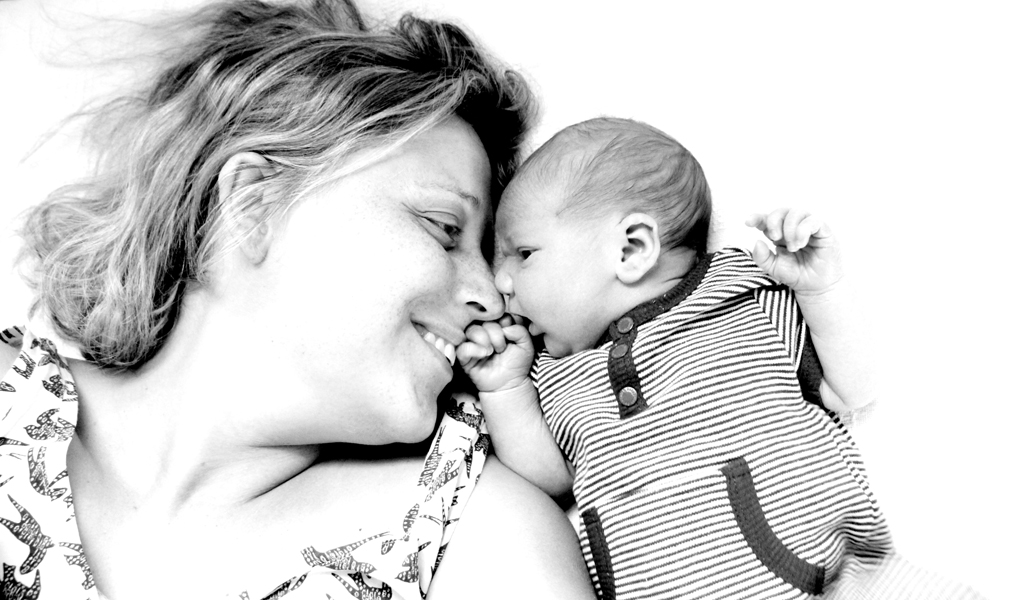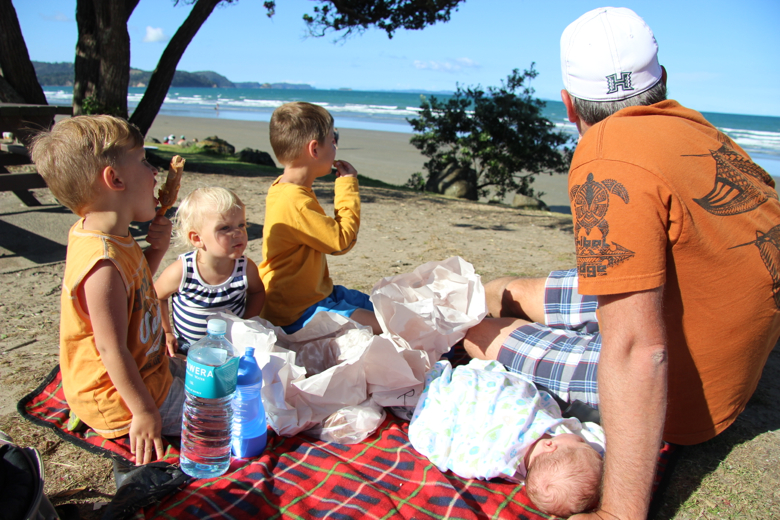A very happy New Year to you! May your 2015 be even more than you hope for.
Stephen and I are back at work today after our vacation and I’m feeling very refreshed and excited about 2015. If you’re looking for a new website designer or blog designer, or a redesign of your existing website or blog (such as converting to a mobile-friendly/responsive design), we are now taking on new clients for 2015. Please get in touch.
On November 30, I gave birth to our fourth child and Theo is a delight to have complete our family! He’s been smothered in kisses and cuddles by his siblings. Like the other three, I’ve been blessed with an utterly smooth labour and a very chilled out baby who rarely cries with two big blue eyes that have captured my heart.

It’s the height of summer here: the days are long and lovely and the sunsets are gorgeous. We’ve enjoyed BBQs, fish’n’chips on the beach, kids swimming in the pools, lots of time with extended family and friends and garden walks. In the evenings, I’ve been relaxing by reading, reading and reading (more on that soon). Oh, and catching the fantastic film Boyhood.


While 2014 was a good year for me personally in so many ways, I know it wasn’t for everyone. Reading between the lines of Today in Tabs, many were ready to welcome in a new year with open arms, and say goodbye to a traumatic year.
Eric Meyer’s post on “inadvertent algorithmic cruelty” as exemplified by Facebook’s “Year in Review” spread rapidly. His reflections made me consider more about the importance of thinking carefully about design and programming decisions – such as the concept of “popular” content when the content itself is heartbreaking:
“Popular” is maybe not the best word choice there.
Admittedly, this is a small wrinkle, a little moment of content clashing with context, and maybe there isn’t a better single word than “popular” to describe “the thing you posted that had the most easily-tracked response metrics”. But the accompanying copy was upbeat, cheery, and totally didn’t work. Something like, “You must be doing something right—people loved what you had to say!”
Eric points out his issue was not with Facebook per se (and uses another example in his follow up post), but this general principle:
“Taking worst-case scenarios into account is something that web design does poorly, and usually not at all”
Not long after I read his post, I received an email from Blurb, a company I love:
“We had a great year at Blurb—we loved seeing 12 months of amazing books. And we bet you had a wonderful year as well.”
Everywhere I looked, there was this assumption that everything is awesome for everyone, every year. It probably always works if it’s a bet (like Blurb says), but I know people who have gone through great heartache, stress, grief, uncertainty and suffering this past year. How do those generic emails work for them? How can we write and make with more empathy and consideration? This is one of the things I’ve been pondering over this new year period. I want to question things more, rather than doing them simply because it’s the way things are done.
Here’s to a more thoughtful, more empathetic world in 2015.
Get actionable tips to grow your website
Thoughtful weekly insights (no hype!) on improving your website